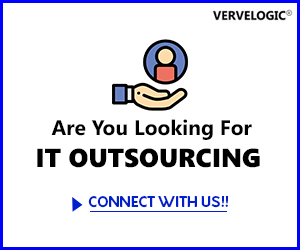Top 10 Cloud Platform as a Service (PaaS) Providers – List Locked for 2021

No industry is immune from cloud computing technology and platforms that provide cloud computing services are the demand of this era. With abundant data to be preserved and operations to be managed, businesses are restlessly searching for a robust technology that can fulfill their purpose and is reliable at the same place. The complete cloud-based app development and deployment ecosystem, PaaS (Platform as a Service) is certainly the type of platform businesses and app developers seek in 2021.
By the end of 2021, the public cloud PaaS market is expected to surpass $55 billion in revenue, says Statista. There are certainly the major players who occupy 50% of the PaaS market namely Amazon Web Service, Microsoft Azure, Google, and IBM. As per the recent surveys, most of the app development companies and businesses who are aware of PaaS tech-stack are already running, experimenting, or planning to use PaaS platforms by these service providers. They have authority but not the monopoly in the market, there are certainly other worthwhile options. The article deals with the top 10 PaaS providers to go within 2021.
What is Cloud Platform as a Service (PaaS)?
As the name has it, Platform as a Service or PaaS is the cloud computing service that rents a platform to mobile app development companies for developing, testing, deploying, hosting, and managing applications all under one roof. Not only that, PaaS is a boon for big enterprises that have towers of data to be preserved, managed, and secured. Also, a company might want to integrate PaaS in its security systems to achieve high quality and remote access to the system.
PaaS with its capabilities is soon to be called the software solution of tomorrow.
Advantages of Platform as a Service (PaaS)
1. Cost-Effective
Several PaaS platforms have pay as you grow pricing options – that means you can pay based on the usage level and the rest you can increase with time. Such platforms are certainly giving relaxations to the enterprises that can’t afford to buy extensive development solutions. And moreover are not in need at least for now.
2. Quick Development
App development is an insightful yet diligent task to accomplish, thanks to the PaaS platforms that now iOS and android app development companies can rely on with their complete app development requirements. PaaS software provides the app developers with the pre-built backend infrastructure that is needed to develop, test, debug, host, and manage the applications – all in the same environment. From the integration of UI components to API and SDK, PaaS has it all.
3. Scalability
PaaS platforms are designed to scale with the company’s needs. As the company grows its clientele event involving international clients it needs a robust infrastructure to manage the abundant. PaaS due to its cloud-based capabilities can scale the development as per the needs of the company without putting pressure on the business itself.
Fact: PaaS software is significantly and substantially used by app development companies for developing some robust native and cross-platform apps that can hold cloud-based functions.
Top 10 Platform as a Service Providers (PaaS)
1. Amazon Web Service
With a signature simple logo, Amazon Web Service is one of the top 5 industry leaders that have the best cloud capabilities in the PaaS market.
Benefits of AWS Elastic Beanstalk
-> The PaaS provider helps web app development companies to deploy and run web apps made using powerful programming languages like Java, .Net, Ruby, PHP, and Python.
-> It displays easy-to-use tools to upload code and handles everything from deployment, provisioning, load-balancing, and auto-scaling.
-> It is super easy to handle a large database as long as you have an AWS cloud database service integrated into your web app.
-> You pay for your AWS resources to create the app and use AWS Elastic Beanstalk free of cost for deployment and running the app.
-> AWS serves excellent documentation for app development.
-> It holds a comprehensive of tutorials on how to integrate the 3rd party APIs (Application Programming Interface) available that are super helpful.
2. Google App Engine
The venture by Google is the potent PaaS that is integrated with Google’s own cloud platform. It uses the same infrastructure as the Google Search Engine leaving no possibilities of lagging or inconvenience. Google App Engine is a serverless platform that is capable of building scalable mobile or web apps based on any programming language.
Benefits of Google App Engine
-> A full-fledged cloud platform to build, deploy and manage your applications.
-> Not only development but Google App Engine is here to take care of infrastructure provisioning and config.
-> You can rely on Googles’ PaaS for app scaling.
-> Developers can code using any language JAVA, Python, Ruby, Node.JS, .Net, etc.
-> Provides high-end security with the help of firewall capabilities, IAM, and SSL/TLS certificates.
-> You can use Google Cloud SDK, Visual Studio IDE, and cloud deployment tool to fully develop and deploy the software.
-> Owns a complete set of documentation.
-> Pay only for the resources you are consuming.
3. IBM Cloud Platform
For a reason, IBM Cloud Platform stands 3 in the list of Top 10 Cloud PaaS platforms. It is one of the giants occupying 50% of the PaaS market and moreover is a powerful infrastructure for security purposes. IBM cloud platform is the combination of PaaS and IaaS and is sitting on the top pedestals in terms of the managed cloud service provider.
Benefits of IBM Cloud Platform
-> IBM Cloud Platform lets you run your application as a cloud foundry app, as a Docker container/Kubernetes cluster, as VM ware, as a virtual machine.
-> IBM Cloud gives all the standard benefits of a PaaS like app development, deployment, management, and scalability.
-> It holds an upper hand due to its wide range of services – 190 services under the catalog.
-> With IBM it is easier to connect your app with other valuable services like IBM Watson (AI of business).
4. Microsoft Azure
PaaS platforms are a boon for app development companies and Microsoft Azure makes it even more valuable for the organization. There are some top-notch cloud service providers that offer IaaS and PaaS components together as per the needs of their clients – Microsoft Azure is one of them.
Benefits of Microsoft Azure
-> The venture by a worldwide reputed company and its cloud capabilities are preferred by most of the app developers on a world scale.
-> Ranked among the top 5 PaaS software providers.
-> Beneficiaries can get features such as data center services, storage, networking, middleware, runtime environments, etc.
-> Azure gives a free trial period and ‘pay as you go’, – the tool to estimate the price. Also, there is detailed pricing of all the services.
-> Complete and excellent documentation available for Microsoft Azure.
5. Oracle Cloud Platform
One of the major software development authorities, Oracle corporation was trusted way before cloud computing made its entrance. Growing with time, Oracle also became one of the best cloud computing platforms.
Benefits of Oracle Cloud Platform
-> Develop apps, manage them, deploy and run.
-> The platform is based on AI and machine learning, thus holds self-repairing capabilities.
-> Top-notch data encryption.
-> The capability to integrate all your applications under one roof and maintain the entire app portfolio.
-> Direct access to Oracle autonomous transaction processing and Oracle autonomous data warehouse.
-> A wide array of services are packed under this PaaS platform.
-> Oracle offers a ‘free trial period’ followed by feasible pricing schemes like ‘Pay as You Go’ and ‘Monthly Flex’.
6. Red Hat OpenShift PaaS
Another worthwhile choice in the league of cloud service providers, Red Hat is a single-window solution to app building, infrastructure, provision, configuration, and security.
Benefits of Red Hat OpenShift PaaS
-> Takes complete advantage of the robust security protocols by Red Hat Enterprise Linux.
-> Integrates the security protocols to OpenShift IaaS.
-> Red Hat OpenShift has an exclusive architecture taking care of efficiency scaling and security.
-> Apps can be developed in multiple languages – whichever app developers want.
-> Apart from programming languages, app developers can leverage services like databases, frameworks, and the capability to integrate 3rd party APIs.
7. SAP Cloud Platform
With its commencement on 1 April 1972, SAP is another mature and influential player in the league of giants like Microsoft, Google, and IBM. The IT-based managerial utility is also giving cloud platform as a service to its long-listed clientele.
Benefits of SAP Cloud Platform
-> It’s an open PaaS.
-> Apart from all the other standard PaaS benefits it gives, it also offers microservices that help in building the best mobile-oriented cloud applications.
-> Enables integration of 3rd party APIs.
-> SAP Cloud Platform serves a wide range of advanced services like integration of analytics, machine learning, orchestration, etc.
-> Easy integration with SAP proprietary portfolios like SAP HANA, SuccessFactors, etc.
8. Mendix aPaaS
Mendix application Platform as a Service is a full-fledged cloud environment for complete app development and management. The boon for iOS app development companies, Mendix facilitates abstraction and automation to the complete app lifecycle enabling speed, collaboration, and speed in the app.
Benefits of Mendix aPaaS
-> The comprehensive of in-built tools.
-> Mendix facilitates visual modeling of apps before actual development.
-> The PaaS cloud service facilitates ‘Agile’ development letting the developers build a collaborative environment.
-> Easy integration of IoT, machine learning, cognitive services, and analytics, all beneficial for business growth.
-> Excellent documentation that helps app developers in integration.
-> Access to Cloud Foundry and Docker or Kubernetes is the major reason why app developers prefer Mendix.
9. Engine Yard
Engine Yard Cloud PaaS offers a highly scalable application environment and offers complete technical support to its users. Engine Yard uses AWS and IaaS to provide the best managed PaaS. Though it primarily focuses on the Ruby on Rails development framework.
Benefits of Engine Yard
-> The benefit of a standard PaaS cloud platform.
-> Have more than a decade’s experience in providing PaaS.
-> Little to no operational cost
-> Scalable, managed, and Efficient
-> Scales automatically as the business requirement grows.
10. Salesforce aPaaS
Salesforce application Platform as a Service certainly holds the privilege to be one of the top 10 PaaS providers. Voted because of its positive views in the PaaS market, Salesforce lets you enjoy all the standard PaaS features.
Benefits of Salesforce aPaaS
-> Complete services including development, deploying, middleware, runtime environments, databases, and easy integration of 3rd party APIs.
-> Salesforce aPaaS uses Heroku to facilitate mobile app development companies and businesses with deploying, running, and managing apps easily.
-> Their ‘Lightning Design System’ provides easy guides and sample codes for mobile app developers.
How to judge the best PaaS Product?
1. Comprehend Your Needs
Shortlist the services you want from the PaaS providers rather than purchasing the full range of cloud tools. Based on the pre-fixed list of crucial features, the app developers can explore the options in the market and see what goes best with their requirements.
2. Budget Fixing
Assess your pre-defined list of must-have tools and features with a pricing matrix. By paying heed to the feature list and pricing, you can easily fetch the top 3-4 solutions. Further, narrow down your search to specific pros and cons.
3. Conduct Demos
The products that survive your expectations with regards to the feature list, pros, and cons, should pass through the final demo test. During demos, the buyer should stress their ultimate purposes and the must-have feature list. For instance, you might want to access the PaaS products for ease in integration and security solutions.
Difference Between PaaS and SaaS
Though the service model is the same. Both PaaS and SaaS are cloud-based services except SaaS offer software that is managed by third-party vendors. PaaS offers the platform to create your own custom applications that have cloud capabilities. No intervening by third-party vendors, PaaS gives full control over the application’s development, deployment, testing, and management.
Though the top 10 PaaS providers are mentioned above, if you still own any queries or are stuck at any tangent you can easily approach the experts. There are the best IT consultants who will promptly guide you with the integration of the AI/ML/VL tech-stack and the pricing matrix you should go with.




